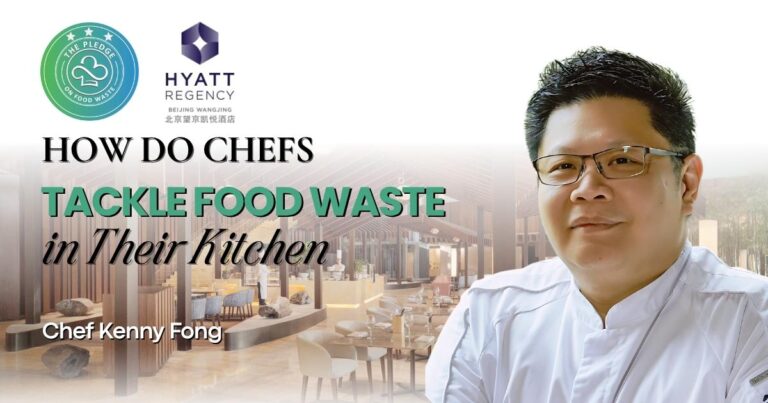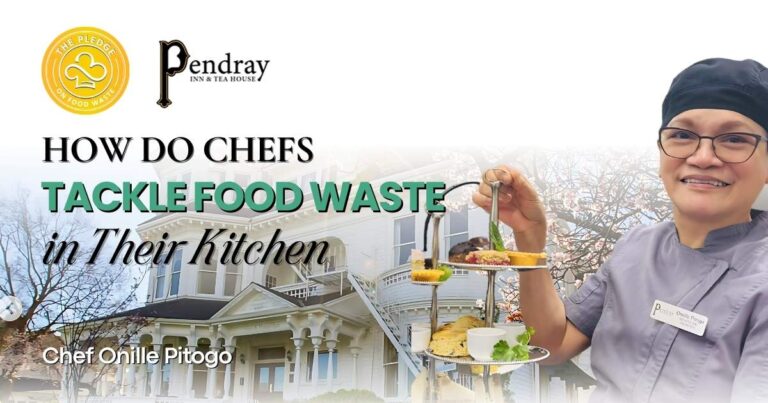So, what exactly is an Accredited Food Waste Consultant?
There’s a profession that most people have never heard of, despite its growing importance in the hospitality and food service world: the Accredited Food Waste Consultant, or AC. These certified specialists support restaurants, hotels, canteens, and culinary schools in cutting food waste while improving their bottom line. It’s a role that bridges sustainability and business strategy, combining environmental expertise with practical problem-solving.
The concept is built on a simple principle: you don’t separate profit from purpose. Businesses need to be profitable, but they also need to be responsible. That’s where ACs come in.
Hotels, with their diverse culinary offerings and high guest turnover, are significant contributors to global food waste. This waste is not just an environmental issue; it carries substantial financial and reputational costs. Uneaten buffet items, overstocked pantries, mismanaged inventory, and plate scraps all contribute to a colossal amount of discarded food. This translates to wasted resources like water, energy, and labor, directly impacting a hotel’s bottom line. Furthermore, consumers increasingly demand sustainable practices from businesses. Hotels failing to address their environmental footprint risk losing valuable eco-conscious guests. Therefore, tackling food waste in hotel operations is crucial for both profitability and environmental responsibility.
More than just good intentions
The regulatory landscape is shifting rapidly, and businesses are scrambling to adapt. Spain, for instance, has made food waste reduction mandatory through Law 7/2022 on Waste and Contaminated Soil for a Circular Economy, specifically Article 19 (BOE, 2022). Similar measures are rolling out across Europe and beyond.
When legislation becomes mandatory, compliance shifts from a choice to a business imperative. Restaurants that serve 160 covers per day suddenly find themselves needing systematic waste reduction strategies, not just good intentions.
The financial drivers are equally compelling. Businesses typically waste 20-30% of their food purchases, representing significant lost revenue. For a mid-sized hotel restaurant, this can translate to tens of thousands of dollars annually. When ACs implement methodologies like The PLEDGE system and Food Intel Tech, the ROI often pays for itself within months.
What they actually do
Take a corporate cafeteria serving 500 employees daily. The AC consultant doesn’t just walk in and tell them to waste less food. Instead, they deploy systematic tracking technology and establish comprehensive monitoring systems from day one.
The process typically involves multiple revenue streams and methodologies. The process begins with implementing the Food Intel Tech (FIT) team for comprehensive 12-month tracking and analytics. This is followed by registration and food waste certification through The PLEDGE system. Then comes the crucial consulting and training component, where ACs work hands-on with kitchen staff and management.
The scope extends far beyond individual restaurants. ACs work with corporate canteens, universities, government agencies, and even cruise lines and theme parks. The common thread is a systematic approach to a complex problem.
This sounds like serious business…
The AC network spans over 13 countries, from Thailand and Japan to the United States and across Europe to the Middle East. Each consultant brings local knowledge while working within a global framework of proven methodologies.
What makes this particularly compelling is the community aspect. ACs are part of a network that shares knowledge, tools, and support. The program includes ongoing workshops, coaching, and access to a cloud platform with comprehensive toolboxes for selling, training, and supporting customers. Their international scope connects them to a worldwide shift in food service operations, amplifying their influence across the entire industry.
The environmental impact is substantial. When implemented properly, these systems can reduce food waste by 50-70% in participating establishments. Multiply that across hundreds of projects and thousands of businesses, and the cumulative effect becomes significant.
What’s driving the growth?
Several factors are converging to create unprecedented demand:
- Regulatory pressure is intensifying globally, with more countries following Spain’s lead
- Consumer expectations are shifting rapidly, with sustainability becoming a key factor in dining choices
- Technology has matured significantly, with tools like Food Intel Tech providing real-time tracking and analytics
- The economics finally make sense – you can do well by doing good
The challenges
The work isn’t without its complexities. The role demands substantial expertise, requiring deep experience in food service or hospitality operations. True partnership means being there for the long haul – AC consultants work shoulder-to-shoulder with clients for six months or more, providing continuous guidance and training.
But for those who have the background and commitment, the opportunity is significant. The field combines environmental impact with business viability in a way that few other professions can match. As regulatory pressure increases and sustainability becomes increasingly central to business operations, the demand for skilled consultants will likely continue growing.
It’s not just a job. It’s about being part of the solution to one of the most pressing challenges of our time, while building a sustainable business in the process.
Do you have what it takes to be an Accredited Food Waste Consultant?
Next batch starts soon: Click here to register now!
Follow The PLEDGE on Food Waste:





